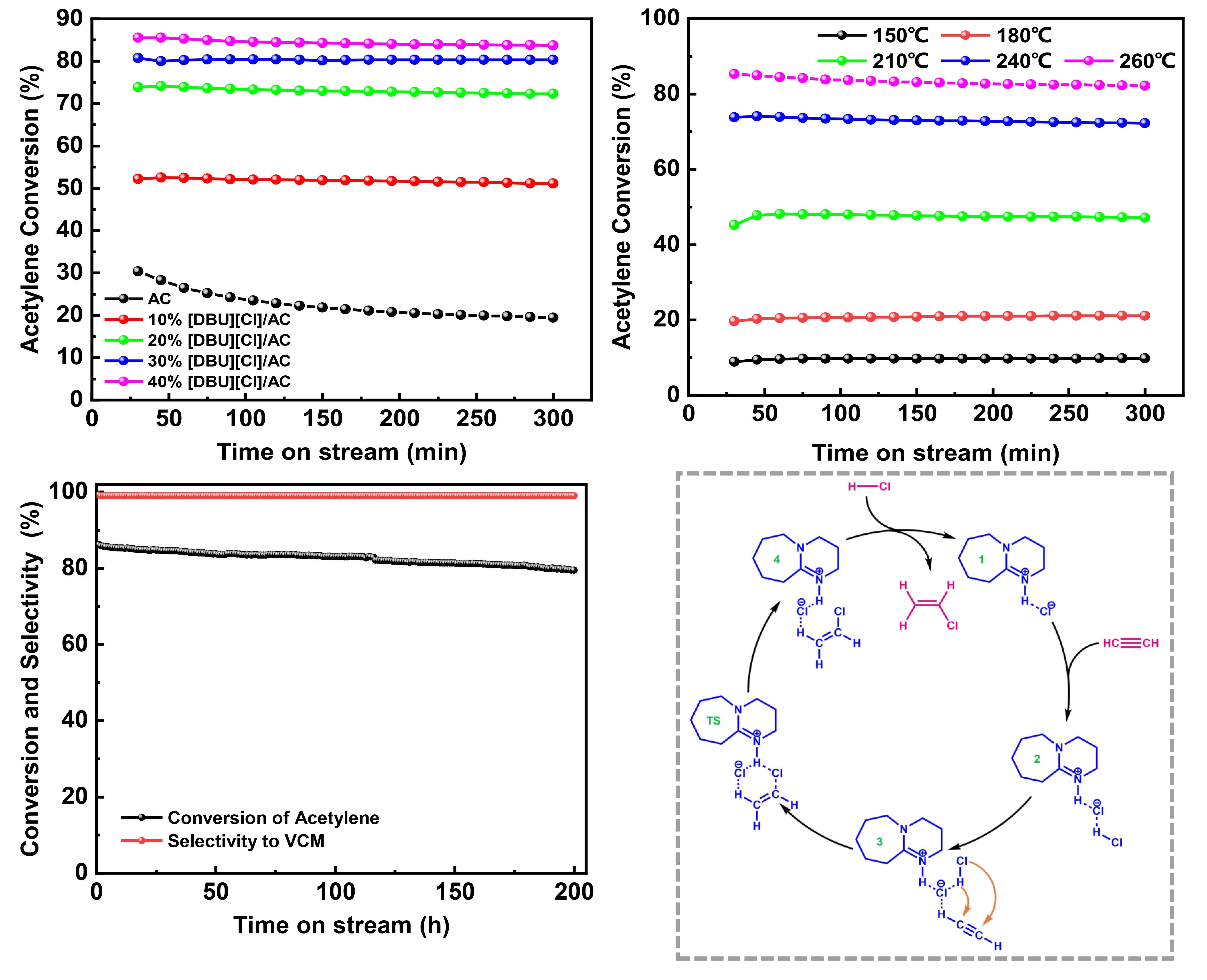New progress in the study of mercury-free catalysts for acetylene hydrochlorination
Author: Time:2022-07-08 Click:
The traditional mercury catalysts have still been widely used in the production of polyvinyl chloride (PVC) by acetylene hydrochlorination, however, their high toxicity and volatility pose a serious threat to human health and the ecological environment, which makes it urgent to explore environmentally friendly and high-performance alternatives to mercury catalysts. Over the years, the research team has been working on the development of novel mercury-free catalysts for acetylene hydrochlorination, and has made progress in the performance and catalytic mechanism of 13X molecular sieve (Green Chemistry) and 13X molecular sieve-loaded CuCl2catalysts (SCIENTIA SINICA Chimica). The two key challenges for mercury-free catalysts in acetylene hydrochlorination are high catalytic activity and long-term stability.

Recently, the research team has made new progress in the research of acetylene hydrochlorination non-metallic catalysts and successfully prepared a series of nitrogen-containing organic heterocycle-loaded catalysts, which exhibit excellent catalytic activity and stability in acetylene hydrochlorination.In the 200-h lifetime evaluation, the 20% [DBU][Cl]/AC catalyst reached 86.8% and 99.5% acetylene conversion and VCM selectivity, respectively, with a deactivation rate of only 0.033%/h.Thermogravimetric analysis experiments showed that the volatilization of part [DBU][Cl] and carbon deposition were the major causes of catalyst deactivation. Temperature-programmed desorption and intermittent flow experiments confirmed stronger adsorption of HCl and weaker adsorption of VCM explaining the excellent catalytic activity and stability of the 20%[DBU][Cl]/AC catalyst.The excellent performance of the 20%[DBU][Cl]/AC catalyst is further supported by more electron transfer and larger adsorption energy when [DBU][Cl] interacts with hydrogen chloride, and a probable catalytic mechanism for the acetylene hydrochlorination over the [DBU][Cl] site is proposed based on theoretical calculations. In this work, a series of non-metallic catalysts were developed using nitrogen-containing organic heterocycles as active components, which provided a new idea for the study of demercurization of polyvinyl chloride production by calcium carbide process.
The research results were published as " Activated carbon supported nitrogen-containing diheterocycle mercury-free catalyst for acetylene hydrochlorination " in Molecular Catalysis. The above research work is supported by Key Technologies Research and Development Program and Liaoning Revitalization Talents Program.
Activated carbon supported nitrogen-containing diheterocycle mercury-free catalyst for acetylene hydrochlorination. Xingzong Dong, Guangye Liu, Zhaoan Chen, Quan Zhang, Yunpeng Xu*, Zhongmin Liu. Molecular Catalysis, 525:112366, 2022.